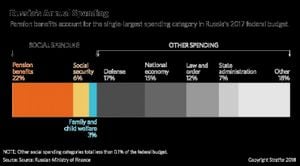The legal challenges for Ticketmaster are intensifying, highlighting the urgent need for more transparent consumer policies. On January 21, 2023, the Supreme Court of Justice of the Nation (SCJN) declared unanimously, emphasizing the necessity for Ticketmaster to articulate its purchasing terms clearly, aiming to safeguard consumers from unexpected fees and unclear conditions.
This decision stems from the troubling experiences of Jesús Manuel Soledad Terrazas, who found himself entangled in Ticketmaster's opaque terms during the acquisition of tickets for the 2022 Tecate Pal Norte music festival. Terrazas purchased VIP tickets costing 20,000 pesos, opting for the 'Will Call' method to collect them at the venue. Unfortunately, upon attempting to pick up his tickets, he was informed of additional charges necessary for the ticket issuance, which his credit card could not process at the time.
Terrazas, faced with no tickets and no refund, pursued legal recourse against Ticketmaster, demanding not only the return of his ticket cost but also compensation for moral damages. Initially, the lower courts sided with Ticketmaster, arguing Terrazas failed to comply with the company's hidden policies. Unfazed, he appealed his case to the SCJN, which has sought to address consumer rights more vigorously.
Significantly, the SCJN’s recent ruling mandates Ticketmaster to present its terms and conditions transparently. According to the court, merely displaying purchase policies on the company's website falls short of ensuring customer consent. The court elaborated, "The simple publication of the policies on the company's website does not guarantee buyers have accepted their content." This ruling signals the need for clarity and visibility, protecting consumers who typically do not have bargaining power when agreeing to such terms.
The obligation for Ticketmaster and similar companies to specify all surcharges before the purchase process is seen as groundbreaking. The court's directive aims to profile for consumers the complete scope of charges, thereby enhancing transparency. Especially for industries where purchasing transactions occur digitally, this ruling establishes important precedents to uphold consumers’ rights and expectations.
Over the years, Ticketmaster has faced mounting complaints related to over-selling, lack of refunds, dynamic pricing, and issues with customer service trails, often leaving consumers feeling misled. This recent bout of legal scrutiny sheds light on larger concerns about consumer trust and corporate accountability.
Following the ruling, Ticketmaster acknowledged the court’s decision, expressing commitment to improve customer service procedures, affirming, “At Ticketmaster, as a company focused on fan experience, we respect and are firmly committed to compliance with the law.” Ticketmaster aims to implement measures to improve clarity and ease within their purchasing framework.
This case signifies not just the firm response from judicial bodies but also sets the groundwork for regulatory changes applicable to all ticket-selling gateways. Other ticket agencies may similarly be forced to recalibrate their operational protocols to align with heightened consumer protection standards.
The SCJN ruling serves as both applause and wake-up call to businesses operating under contract adhesions. Firms must navigate the fine line of protecting their revenue models without compromising consumer trust and rights. Transparency is no longer negotiable but rather required for fostering loyal and repeat customers.
Looking forward, the necessity for clearer purchase terms traverses beyond Ticketmaster and the music event ticketing sector. It expands to how companies engage consumers across transactional platforms. Hence, heightened vigilance and scrupulous interpretation of contractual adhesion, which traditionally placed consumers at the mercy of service providers, is now recognized as requisite for fostering equitable marketplace practices.
This historic ruling by the SCJN not only boosts individual consumer cases but creates waves expected to resonate through various sectors where consumer rights may have been previously overlooked. Prospective buyers should expect greater clarity, easier access to information, and firmer enforcement of their rights based on this pivotal legal benchmark.



